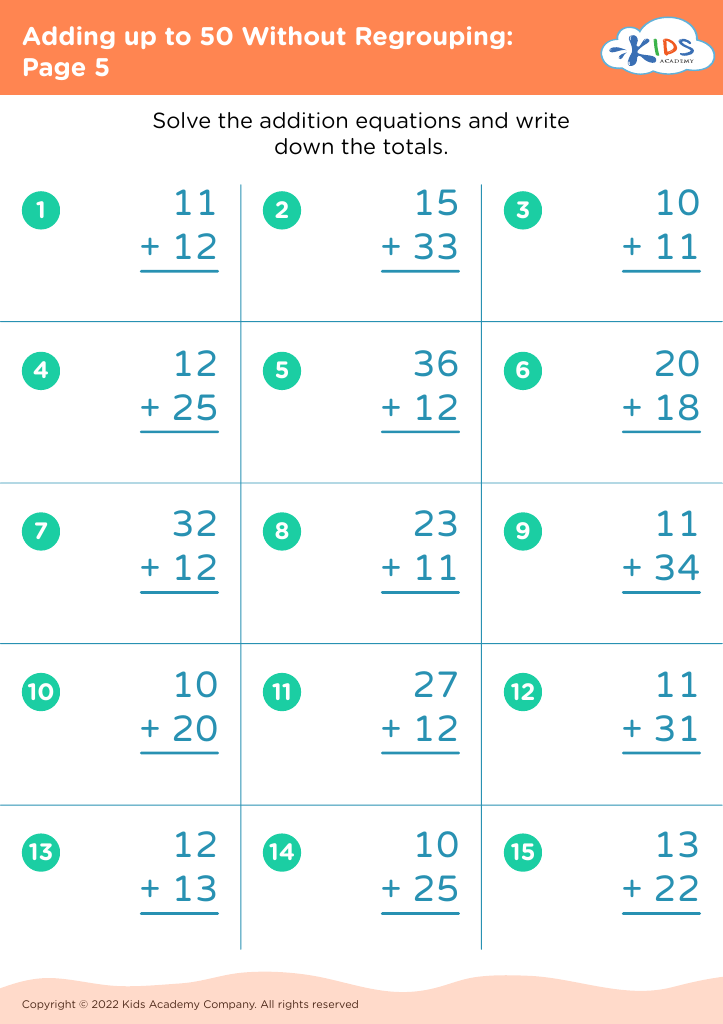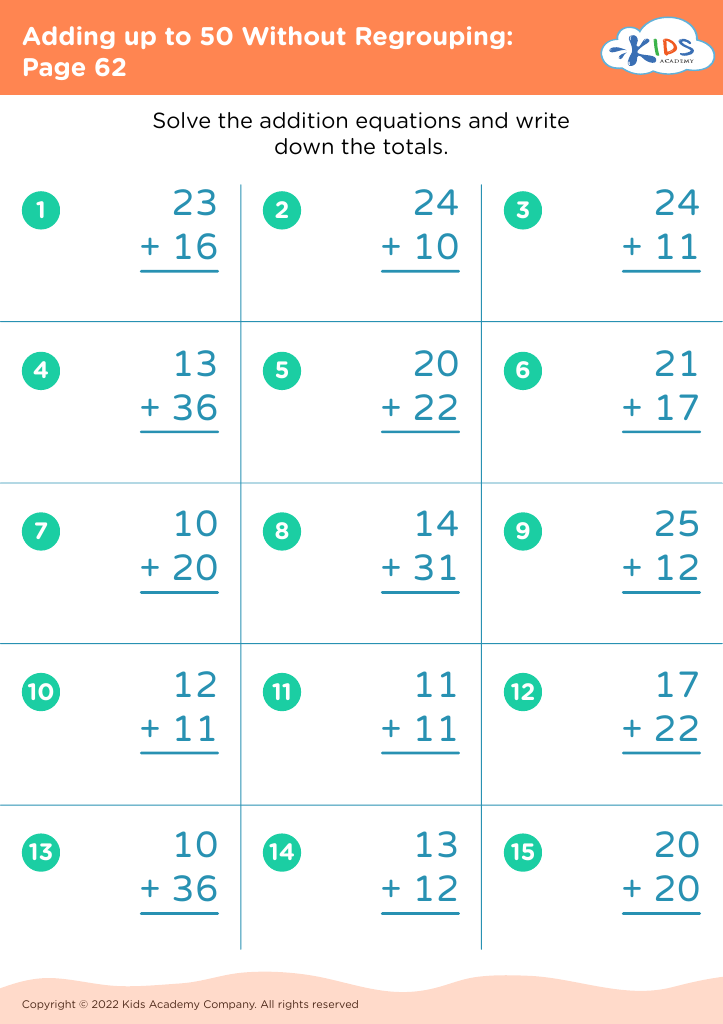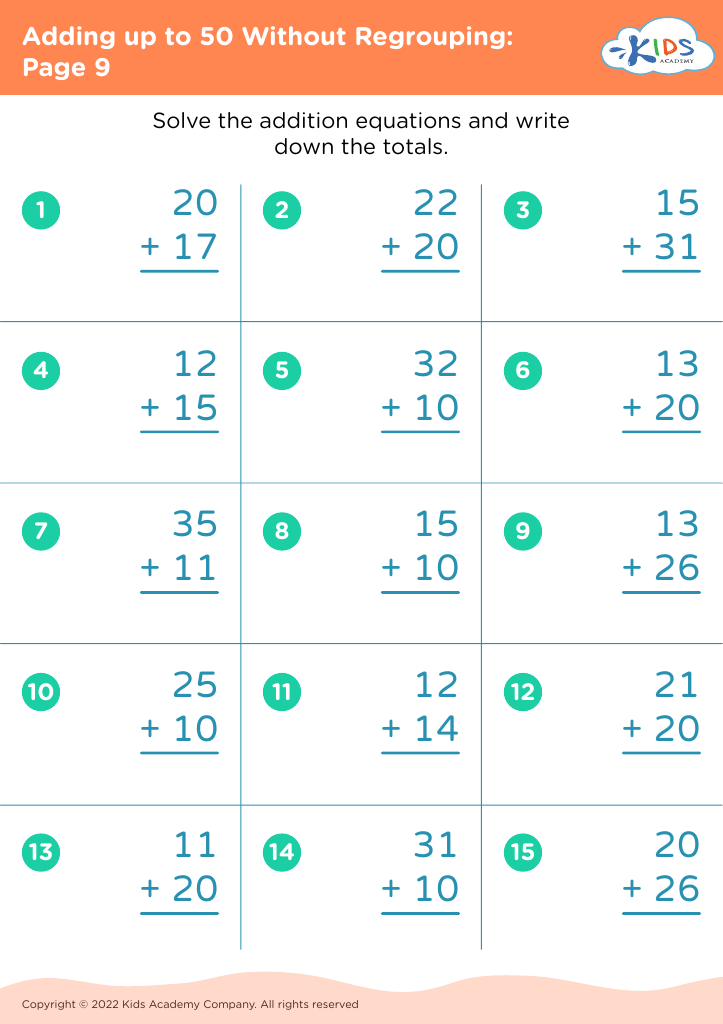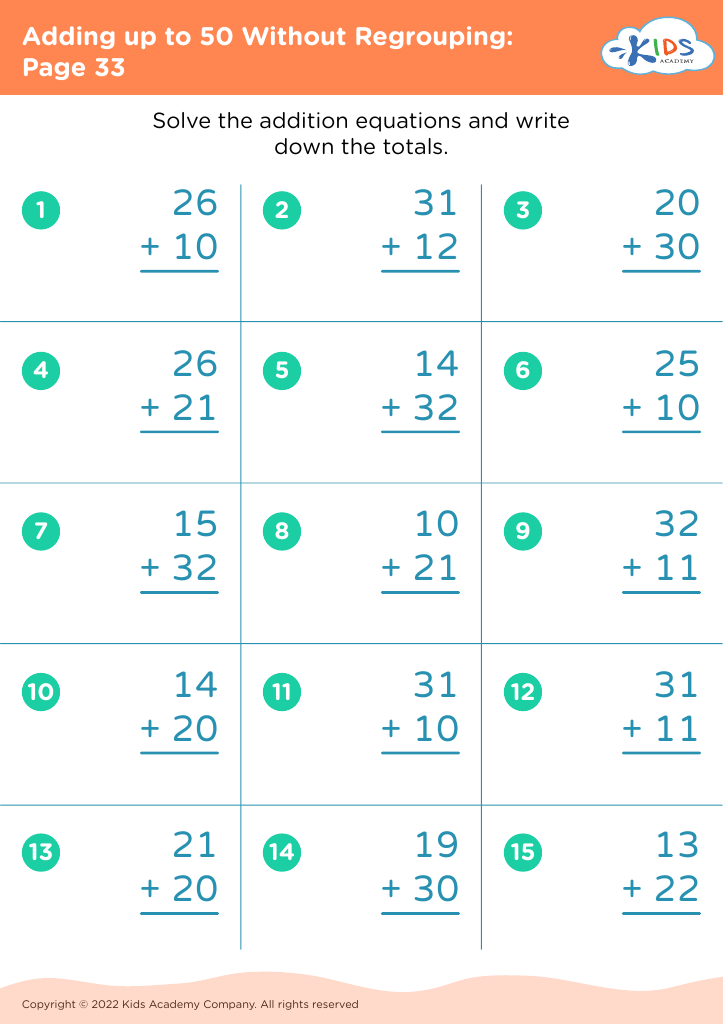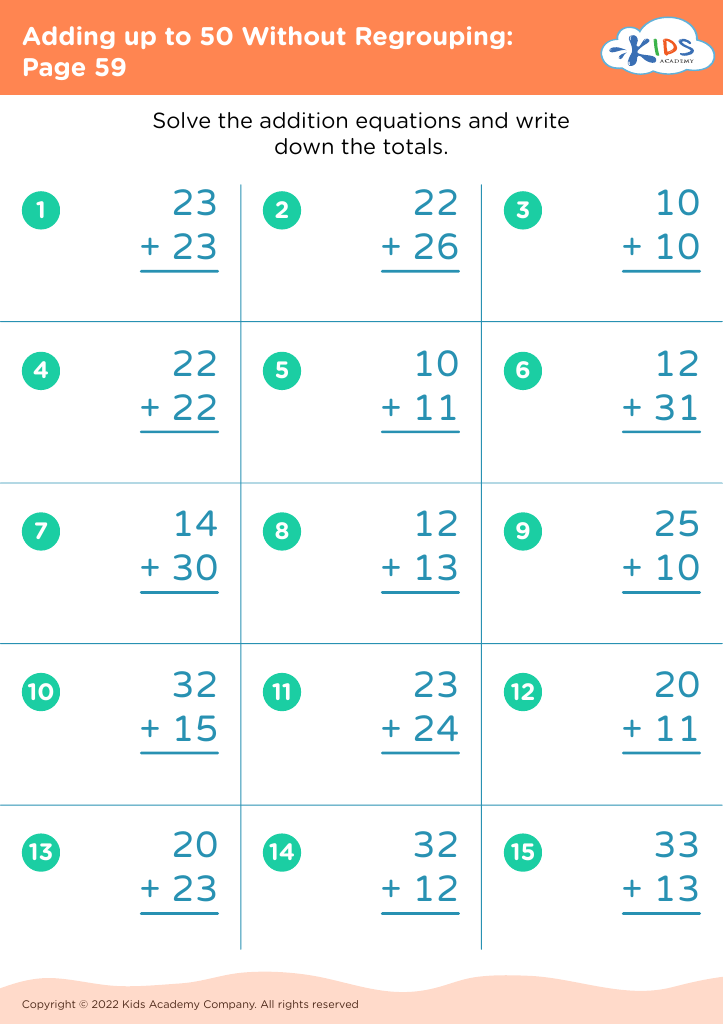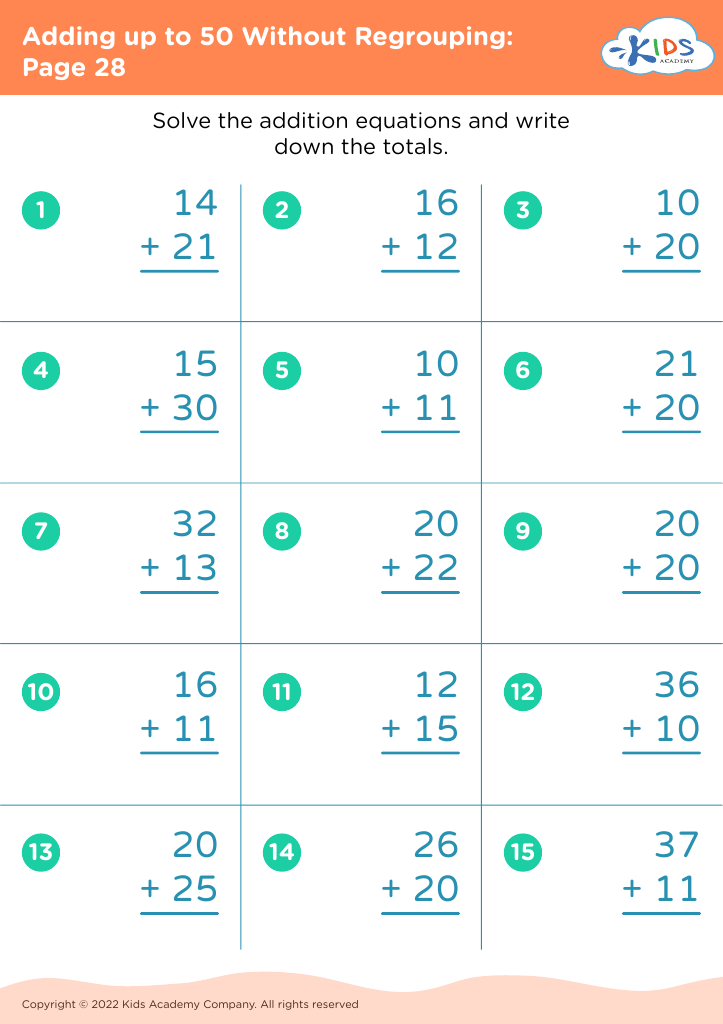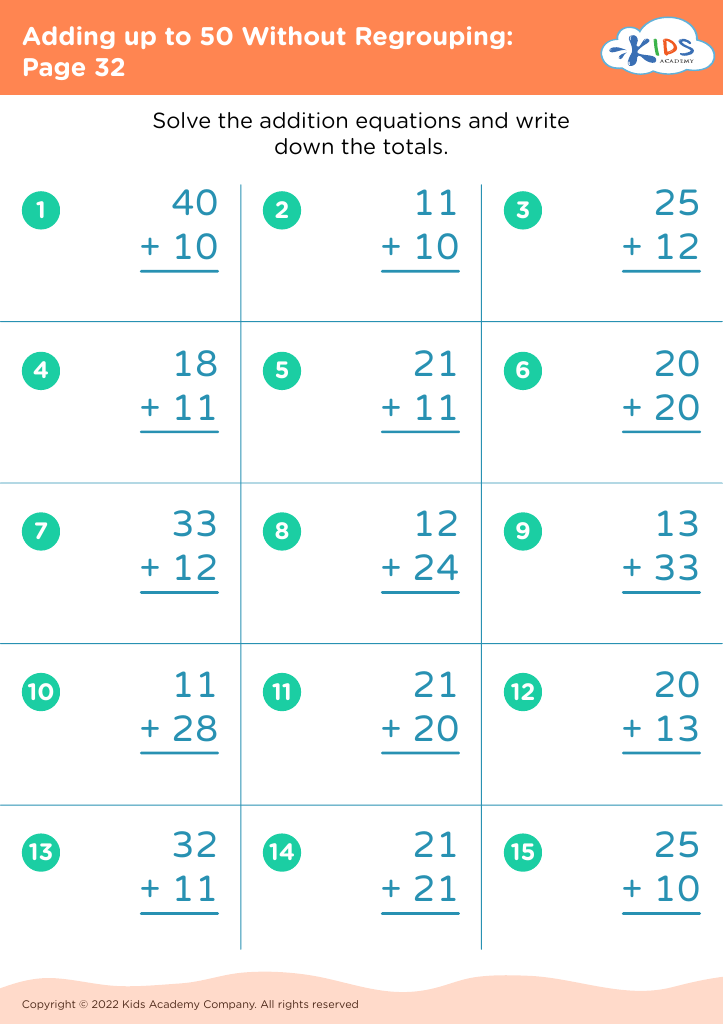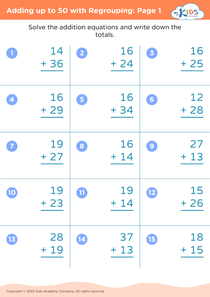Number Recognition Adding up to 50 Without Regrouping Worksheets for Ages 4-8
15 filtered results
-
From - To
Enhance your child's mathematical journey with our "Number Recognition Adding up to 50 Without Regrouping Worksheets" tailored for ages 4-8. These engaging worksheets are designed to reinforce basic math skills, ensuring young learners can confidently recognize numbers while mastering addition up to 50 without the need for regrouping. Perfect for early graders, each activity encourages problem-solving and number fluency through colorful and interactive exercises. Our method cultivates a solid foundation in math, promoting confidence and enthusiasm in young minds. Elevate your child's educational experience with our expert-approved resources, making learning both fun and effective!
Number recognition and basic addition skills form the foundation of mathematical understanding and cognitive development for children ages 4-8. Both parents and teachers should recognize the importance of these skills as they pave the way for more complex problem-solving abilities and critical thinking.
Number recognition up to 50 helps young students become familiar with numeric values and their sequence, which is crucial for daily activities, such as counting objects, reading time, and handling money. Understanding how numbers work in succession strengthens their memory, enhances their ability to make logical connections, and also aids in the development of other core academic skills like reading and writing.
Adding numbers without regrouping is an essential milestone that enables children to understand simpler counting principles and math operations without confusing rules initially. This promotes a sense of achievement and boosts their confidence, which is critical at such a formative age. Being adept at basic addition allows children to see patterns, solve simple math problems independently, and advance to more complex calculations with a solid base.
By focusing on number recognition and basic addition, parents and teachers are investing in the child's broader academic success and day-to-day problem-solving capabilities, ultimately fostering a positive attitude towards learning and intellectual curiosity.



